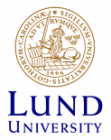Future ion-channel based membranes for water purification
Cooperation to develop a new technological approach for membrane filtration purposes with special focus in drinking water.
Membrane technology, in particular reverse osmosis (RO), is an established key industrial sector in the Middle East due to the lack of fresh water in this mostly arid region, while Sweden despite its relative mild climate is getting increasingly dependent on membrane technologies for fresh water preparation e.g. the RO desalination plants on Gotland. It is foreseen that this situation will worsen in the future due to climate change and to maintain a sustainable drinking water supply in Sweden will require that new desalination plants will be constructed.
Both regions (Scandinavia and Middle East) are characterised by large industrial water demand e.g. the agro-food industry in Israel and the pulp and paper industry in Sweden. The development of new advance membranes is essential to secure a sustainable drinking water supply for the population as well as sufficient water for the industrial sectors.
In recent years, the development of a new generation of membranes based on the incorporation of functional motifs has demonstrated promising results on laboratory scale and thus has the potential to be key in securing future’s water supply. A wide variety of functional motifs had been successfully incorporated in both lipid-based and polymer-based membranes with promising filtration properties, among these are aquaporins, carbon nanotubes and most recently graphene some of the most highlighted materials. However, those materials are sometimes difficult to produce and stabilize.
A more practical and economical approach is to use natural and artificial peptide-based pores/ion-channels/nano channels that are easy to produce and stabilize in soft membranes. There is still a lack of experimental results under industrial conditions systems using sea or brackish water as feed and operate these membranes on sufficient scale to secure easy scalability. The experimental results of operating these membranes under industrial conditions using sea and/or brackish water as feed and on sufficient scale to secure easy scale-up are still very limited. However, the results are essential to answer questions on the economic cost of those new membranes such as operational life cycle, resistance to cleaning processes etc.
Funding
Total funding: 150,000 SEK
Funding agency:
STINT – The Swedish Foundation for International Cooperation in Research and Higher Education.


